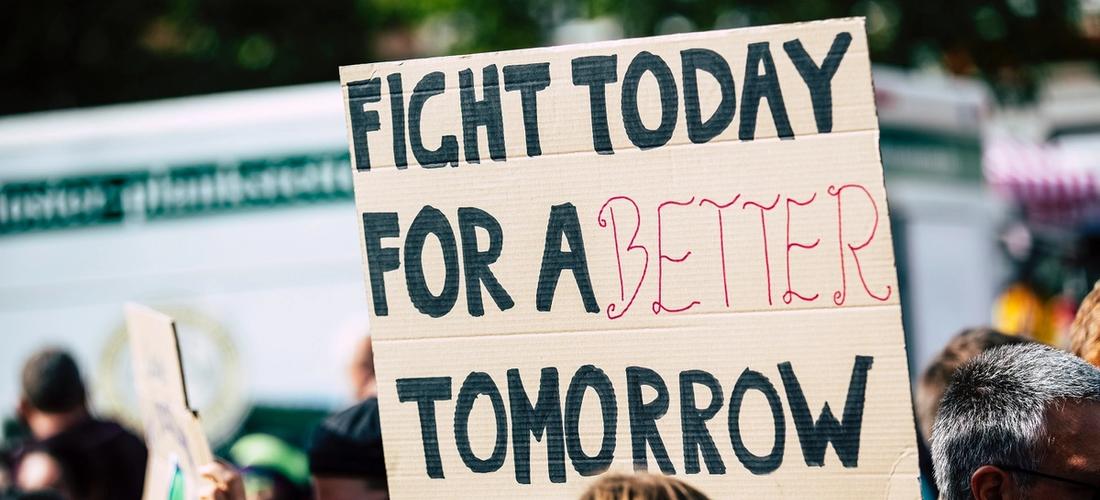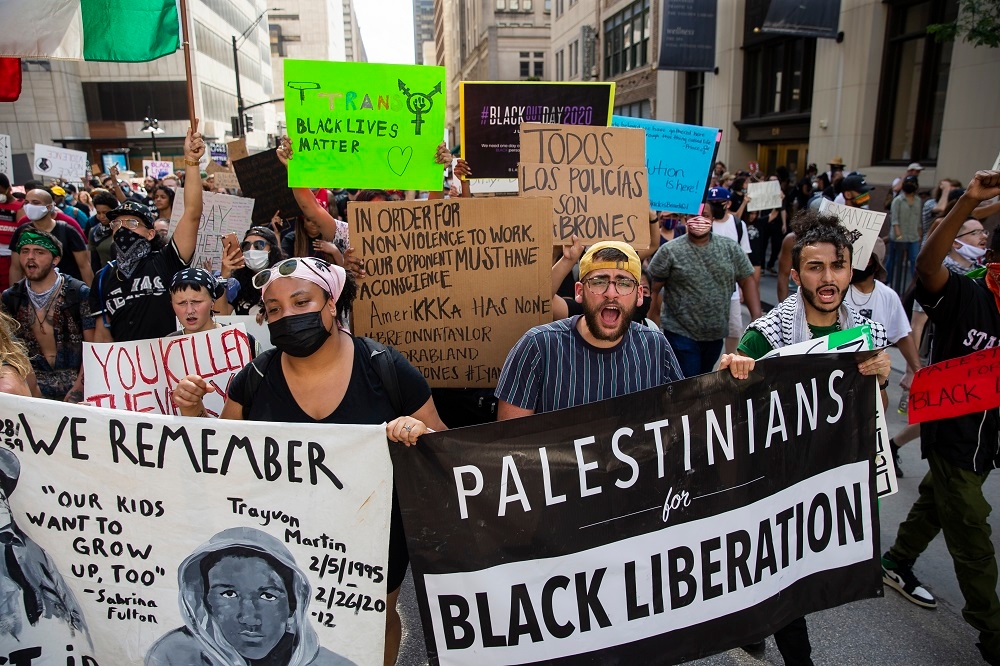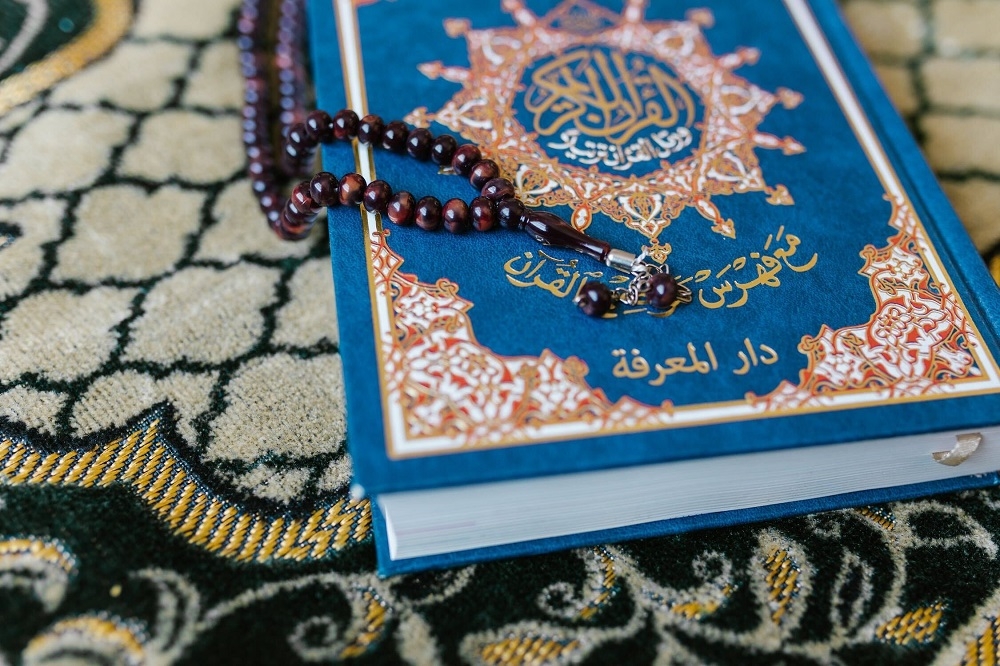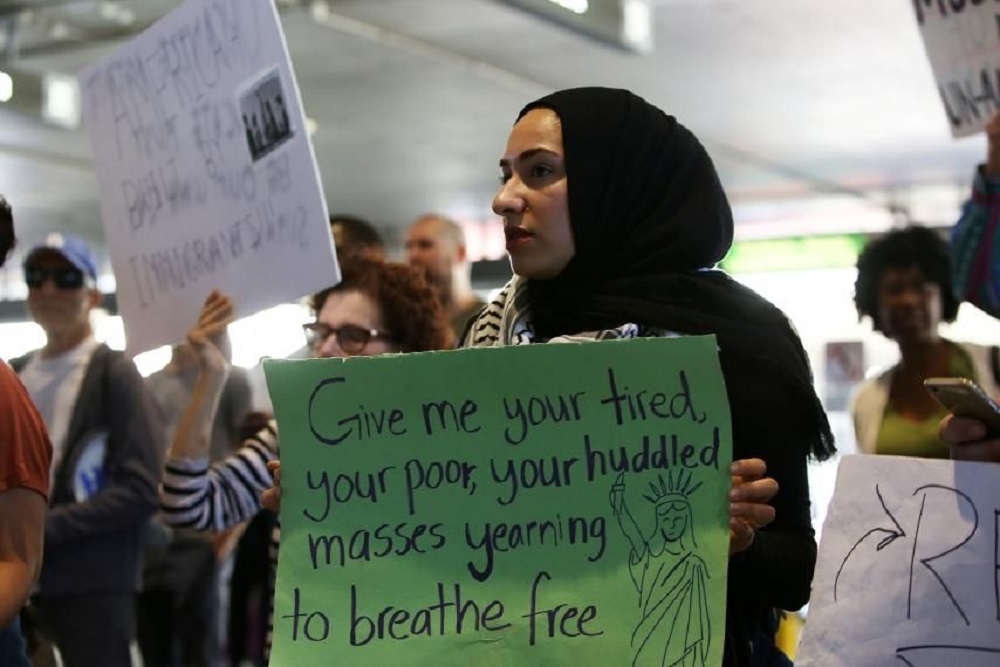Upholding Justice in a Turbulent World Is Challenging & Necessary; Here's 6 Ways We All Can Do So
Community
|
Dec 14, 2023
|
6 MIN READ

Image source: Pexels
Editor’s Note: It's time for our annual #LikeYouMeanItHH end-of-the-year reflection time when we discuss what it means to renew our intentions around hijab and various aspects of our lives. While in past years, we’ve reflected on what it means to "wear it [hijab] like you mean it," this year, that focus felt too narrow and out-of-touch with the realities of our current world and lives. These are difficult, challenging, painful, somber times - for a number of reasons. And we want to explore what it means to live and focus “like you mean it” against the backdrop of everything we are enduring. We invite you (and ourselves) to renew our intentions and reflect on what our faith, families, and commitment to fighting for justice mean to us.
In a world rife with conflict, crises and widespread oppression, pursuing justice transcends being merely a noble endeavor; it emerges as a profoundly demanding and necessary one for the preservation of our humanity and our ummah. This reality holds particularly true for Muslim women, who navigate a complex intersectionality of faith, gender and the harsh realities of global injustice.
The unique challenges we face reflect not just the external world's turmoil but also the internal conflicts that arise from constantly balancing these dimensions. Our role in this landscape is not passive; Muslim women often find themselves actively at the forefront of social justice battles. We become advocates and voices for change, representing their communities and the larger fight against systemic inequalities.
As we explore what it means to engage in social justice work in a truly meaningful (and non-performative way), we must reflect upon what matters to us and who matters to us? If we cannot want for our fellow Muslim, our fellow sisters and brothers in Islam and our fellow humans what we want for ourselves in ways that are pleasing to Allah (S), then who are we?
What does it mean to engage in social justice work “like you mean it?” Why is it a struggle worth doing?

Image source: Twitter
Immensely Draining, Immensely Gratifying
This struggle to fight for justice across different landscapes and in the myriad of ways injustice exists in our communities is far from straightforward or effortless. It is not merely physically draining, requiring immense dedication and perseverance, but also emotionally taxing. Whether you’re engaging in charitable work or fighting against racial injustice, disability rights, educational equity, climate justice, poverty justice or justice for oppressed communities like Palestinians, Rohingya Muslims, Ugyhur Muslims and on and on, the fortitude needed is immense.
(Click here to learn how to educate yourself about Palestine and be a supportive ally. Click here to learn about the situation in the Congo and Sudan and how you can be a better ally. Click here to learn about "Movements that Matter" in here to learn about our #CantBanUs campaign and how you can be involved.)
Navigating a landscape marked by inequality and prejudice demands a high emotional toll. The burden is further compounded by frequent misunderstandings and misrepresentations of our faith and the faith of others. These misinterpretations create additional barriers, making our fight for justice not just about changing policies or attitudes but also about reshaping perceptions. And this fight can be painstakingly slow with incremental victories along the way.
So then, why should we engage? Why should we find that which we are passionate about changing and dive deep into it?
Enjoining good and forbidding evil is one of the basic principles of our faith. In the Quran it states, “You are the best community ever raised for humanity—you encourage good, forbid evil, and believe in Allah. Had the People of the Book believed, it would have been better for them. Some of them are faithful, but most are rebellious.” [Quran, Al-Imran 3:110].

Image source: Pexels
Or as this explanation of the ayah in Islam Question & Answer states, “Enjoining what is good and forbidding what is evil is a mission which will never end until the Hour begins. It is obligatory upon all the ummah, rulers and subjects, men and women, each according to his or her circumstances. The Prophet (peace and blessings of Allah be upon him) said: ‘Whoever among you sees an evil action, let him change it with his hand [by taking action]; and if he cannot, then with his tongue [by speaking out]; and if he cannot, then with his heart [by feeling that it is wrong] – and that is the weakest of faith.’” [Narrated by Muslim, 49]
Living a Life of Justice Inspired by Islamic Principles & Personal Conviction
As Muslim women advocate for change, they are simultaneously engaged in a battle to defend and clarify the true principles of Islam – a religion that, at its core, advocates peace, justice and equality. This dual struggle underscores the resilience and strength inherent in their pursuit of justice, reflecting a deep commitment to societal transformation and personal and spiritual integrity.
The Quran and hadith (sayings of Prophet Muhammad (saw) are replete with teachings emphasizing the importance of social justice. For instance, Surah An-Nisa (The Women) in the Quran advocates for protecting women's rights and underscores the importance of fairness and justice in society. Moreover, Prophet Muhammad’s (saw) life serves as a testament to these values, as he championed the rights of the marginalized, including women, the poor and minorities.
Islamic teachings advocate for a balanced approach to justice encompassing kindness, compassion and empathy. The concept of 'Adl (justice) in Islam is not limited to legal justice, but extends to social and economic justice, emphasizing the importance of equality, fairness, and the eradication of discrimination in all its forms.
Some of us have been engaging in social justice work in a variety of ways for a long time. For some of us with our daily responsibilities, that work looks like educating ourselves, having challenging conversations with loved ones to share truths around justice issues and the amplifying and sharing of other people’s work in the field. For others, social justice work becomes a larger part of our lives if not our whole life’s work. There are so many ways to engage. The point is to engage. Here are six ways you can get started:

Muslims protesting against former President Trump in 2017 around the time of the travel ban; image source: Twitter.
1. Educate and empower: The first step towards embodying justice is gaining knowledge. Understanding Islamic teachings on justice, human rights and the dignity of all individuals is crucial. Education is a powerful tool for empowerment, equipping Muslim women to advocate effectively for change.
2. Engage in community work: Active involvement in community work allows for applying Islamic principles of justice practically. Whether volunteering at a local shelter, participating in community dialogues or organizing awareness campaigns, these activities reinforce the Islamic tenet of being a beneficial member of society.
3. Advocate for policy change: One of the most effective ways to embody justice is to advocate for policy change. This can involve lobbying for laws that protect the rights of the marginalized, participating in peaceful protests, or using platforms like social media to raise awareness about injustices.
4. Practice inclusivity and intersectionality: Embracing inclusivity and intersectionality is crucial. Recognizing that the struggle for justice is interconnected across different communities and issues is essential. Through their unique perspectives, Muslim women can bridge gaps and foster solidarity among diverse groups.
5. Spiritual resilience and self-care: Maintaining spiritual resilience is vital in the face of constant challenges. Regular prayer, meditation and reflection based on Islamic teachings can provide inner strength and patience. Self-care is not selfish; it’s necessary for long-term engagement in social justice work.
6. Be a voice of reason and compassion: In a world where misinformation about Islam is rampant, Muslim women can embody justice by continuing to be voices of reason and compassion. By dispelling myths and showcasing the true, peace-loving nature of Islam, we can challenge stereotypes and promote understanding. By just living our lives as compassionate, kind, fair and strong Muslims, we are an example to those around us.
For Muslim women, the path to embodying justice is continuous and evolving. Rooted in our faith and driven by a profound desire for a just world, our journey is one of resilience, courage and unwavering commitment. Drawing on Islamic teachings and our personal resolve, we navigate a challenging world, striving to make a difference, one step at a time.
This journey is about confronting external injustices and internal growth as we embody the principles of justice in our daily lives, Insha’Allah inspiring others along the way.
Subscribe to be the first to know about new product releases, styling ideas and more.
What products are you interested in?


